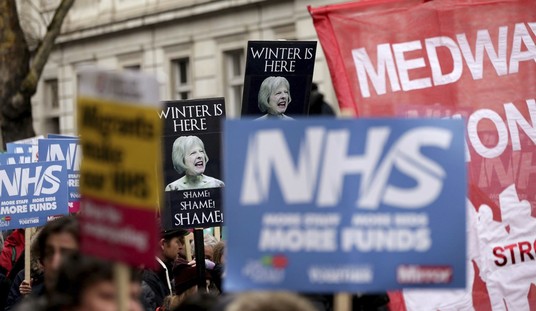He’s been called by Stu Rothenberg perhaps the “best GOP challenger in the country,” running a toss-up race in a purple state. His latest ad goes straight to the issue of the perpetual voter concern—whether Gardner “cares about people like me.” Turns out he lost his health insurance plan in the Obamacare fall-out, as he informs the many Coloradans who are in the same situation:
Democrats will argue that many Coloradans have gained health insurance in the wake of Obamacare, but a) that doesn’t deal with the broken promise and b) those who gained insurance are going to be navigating the minefield of costly bureaucracy outlined by National Journal last week. This is what Obamacare’s “winners” are dealing with.
The basics are these, but as with all things Obamacare, even the basics are frightfully byzantine. Many people with Obamacare plans are getting much of their premiums paid by other taxpayers. Those getting subsidies have their subsidies dictated by the price of something the administration calls a “benchmark” plan. If one chooses something more complex or expensive, as NJ reports, they’re on the hook for the difference from the benchmark plan. But here’s the thing. The benchmark plan isn’t the same from year to year. As insurance companies find ways to offer cheaper plans than the benchmark (a good thing at first glance), the benchmark plan may become a different, cheaper plan. So, you signed up for the old benchmark plan, calculated your budget according to the amount you were subsidized, and once your plan was no longer the benchmark plan, you ended up having to pay more. Which means, in order to avoid an increase in premium above and beyond anything insurance companies might add, you have to monitor which plan is the benchmark plan every year and change your plan accordingly if you want your subsidy to work out. (Remember when Obamacare was going to mean falling premiums? Another nice promise.) That means, once again, changing doctors and networks and benefits. That’s a pretty big ask for anyone who’s had the misfortune of navigating the faulty sign-up system for Obamacare once already this year. And, what’s more, the Obama administration in an attempt to keep its coverage numbers high, has set up automatic re-enrollment. When Democrats tout the success of Obamacare, this is the system they’re talking about. That should make all of us very afraid of their definition of success. If a private company operated this way, the CFPB would be after them. More argh-inducing detail from NJ. The whole thing is well worth your time.
As cheaper plans come into the marketplace, millions of consumers will see the cost of keeping their plan rise. But they might not know it.
HealthCare.gov isn’t able to automatically recalculate the subsidies existing consumers are eligible for. So, while the dollar value of your financial assistance drops, you can only find out that’s happening by going back into the system and asking for a redetermination as part of the shopping process.
Consumers who auto-renew their policies will get the same dollar value of subsidies they got last year—even though changes in the marketplace all but guarantee that will no longer be the right subsidy amount for millions of people.
“That’s the totally crazy part,” Pearson said. “They’re basically going to send them what they know to be the wrong subsidy.”
The IRS will eventually figure out how much financial assistance you should have received, and will reconcile the difference on your taxes. If you should have gotten a bigger subsidy, the government will issue you a tax credit. If your subsidy was too big, which would be the case if you keep your plan and lower-cost options come to the market, you’ll owe the IRS money.
Milliman has this example: Your plan doesn’t change its premiums at all, and your income isn’t changing. You auto-renew and keep receiving the same subsidy. But because of changes in the benchmark plan, you shouldn’t actually be receiving the same subsidy. Although it seems to you like nothing changed—not your premium, not your income—you’ll owe the IRS between $300 and $2,500 when you pay your taxes, because your subsidy should have been smaller. Unless and until HealthCare.gov is able to do this math automatically, it’s up to you to figure that out.
Meanwhile in Oregon, home to the worst of the state exchanges, the fight over that expensive and useless exchange has devolved into slander suits. The Oregon exchange never signed up one person despite its high price tag and the full backing of its gung-ho blue-state bureaucrats and Democrats. And, a major pilot program meant to revolutionize cost-savings at hospitals was a total bust. All this success is going to kill us.








Join the conversation as a VIP Member